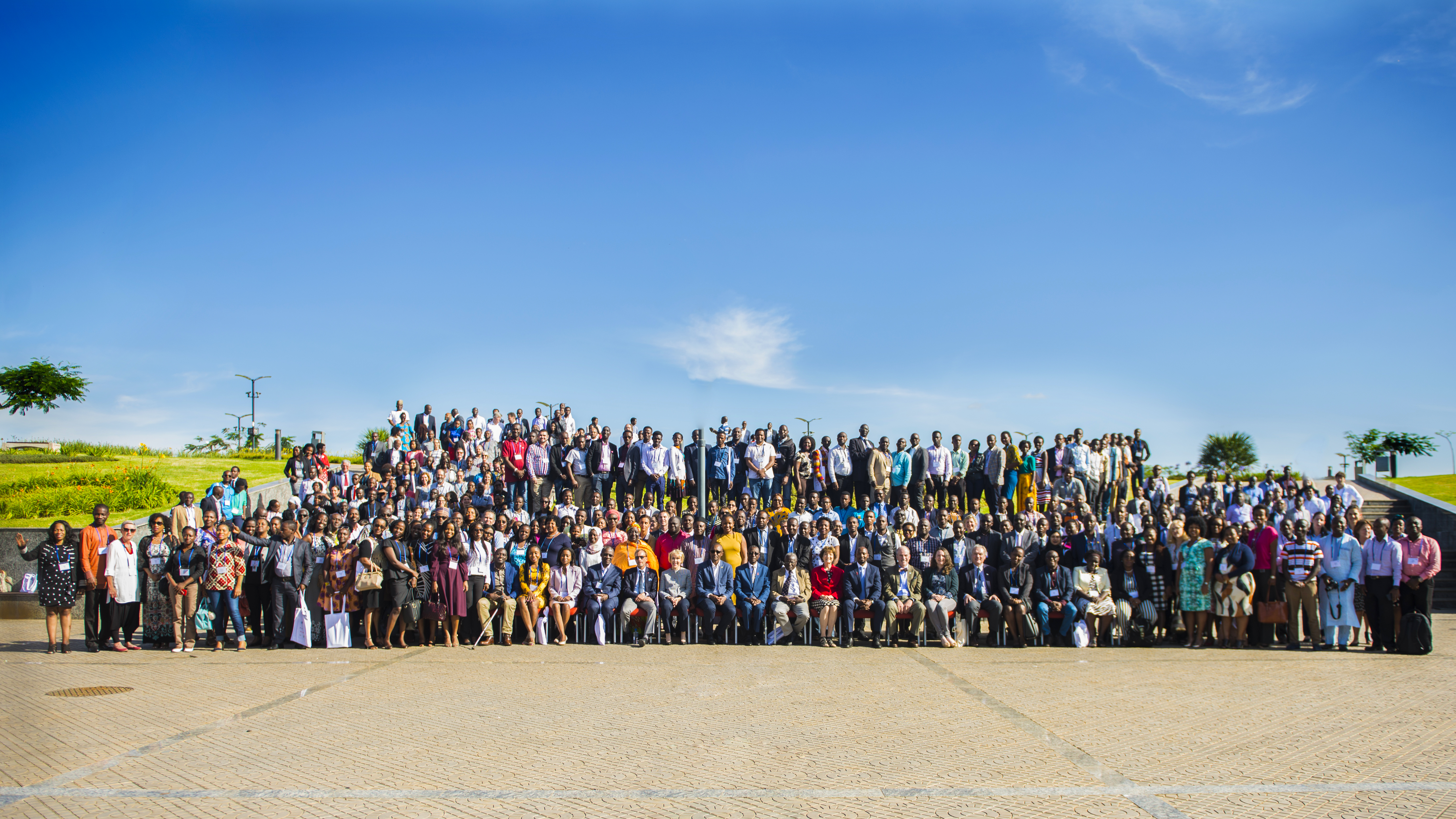
08 Jun 12th Annual INTEREST Conference most successful yet
A diverse group of delegates recently united at the 12th INTEREST Conference to work toward a common goal: ending the HIV epidemic. The conference provides a platform to share pivotal findings, promote collaboration, and transfer experiences across several fields and many continents.
Active participants totaled 592 and came from 32 countries to collaborate, network, and share leading research findings at the annual HIV-focused conference. The conference took place in Kigali, Rwanda at the Kigali Convention Centre from May 29 to June 1.
More than 380 peer-reviewed abstracts were submitted; the top 38 were selected for oral and mini-oral presentations, with registration, travel, and accommodation, funded through a grant from the USA National Institutes of Health and the Fogarty International Center.
Delegates ranged from three local high school students interested in research careers to some of the world’s leading scientists involved in HIV treatment, pathogenesis, and prevention research.
“The main reason behind [INTEREST} is to encourage young scientists in our region to become bold and continue with their scientific career,” said Dr. Elly Katabira, Professor of Medicine in the School of Medicine, Makerere University College of Health Sciences, Uganda.
“We have a lot of young people and when I come to these meetings and see them, it makes me very happy – without the youth taking on research, we are done.”
“It’s an opportunity for researchers to meet, exchange, and build better research questions for the future,” added Dr. Sabin Nsanzimana, director of the National HIV Program for Rwanda and Division Manager for HIV/AIDS and Viral Hepatitis at the Rwanda Biomedical Center.
“[INTEREST also helps with] knowing what is going on and what is happening to improve health in the community because at the end of the day, research is about improving practices and having an impact on people’s health,” he added.
Known as the “African CROI”, the INTEREST Conference featured a number of sessions and presentations including oral abstract, poster, mini-oral abstracts, and symposia. Participants also had the opportunity to attend an early morning program that included Joep Lange early-career mentoring sessions, grantspersonship discussions presented by NIH, ANRS, and EDCTP, and themed poster discussions.
“We chose Rwanda because it allows us to showcase the superb job in responding to the HIV epidemic; they’ve got great examples of scientific knowledge translation into action,” said Dr. Cate Hankins, AIGHD researcher and co-chair of the conference.
“INTEREST gives a chance for young Rwandan researchers to present at an international conference for the very first time. INTEREST’s overall goal is to help build the next generation of African scientists and foster networking.”
It is this focus on developing and supporting young African researchers that sets INTEREST apart from other conferences.
“What I found very unique about INTEREST is that its open to young researchers that have the opportunity to present results – at other conferences, they might not have that opportunity,” said Pascale Ondoa, Director of Science and New Initiatives at the African Society for Laboratory Medicine.
“They can meet with very experienced researchers that can not only discuss their results but also mentor them,” she said, noting senior researchers provide practical guidance around things like code of conduct and insight into potential publications for young researchers to publish their specific results.
The event was kicked off by the Rwanda Minister of Health, Dr. Diane Gashumba followed by a press conference where local media, including IRwanda24 and Xinhua, had the opportunity to ask questions of the co-chairs, partner organizations and Minister. An interactive and lively debate closed out the formal program on the opening day and was followed by a celebration that included a traditional inganzo ngari dance performance.
For participants, the opportunity to learn from peers and to network had a significant impact.
“I attended because I’m very curious about research that’s going on with non-communicable diseases and HIV,” said Angella Namwase, research capacity building coordinator with the Infectious Diseases Institute in Uganda and first-time INTEREST attendee.
“I have an abstract [at INTEREST]… and I have been able to learn from other people that are doing research in that area.”
The conference co-chairs are Dr. Cate Hankins and Dr. Elly Katabira, Professor of Medicine in the School of Medicine, Makerere University College of Health Sciences, Uganda. The Rwanda local chair for 2018 was Dr. Sabin Nsanzimana of the Rwanda Biomedical Center.
The event was co-founded by the late Professor Joep Lange of the Amsterdam Institute for Global Health and Development (AIGHD) and Professor Charles Boucher of Erasmus University. It’s co-organized annually by AIGHD and Virology Education.
Next year’s conference location is expected to be announced in the coming months.
For more information, visit the INTEREST Conference website.
